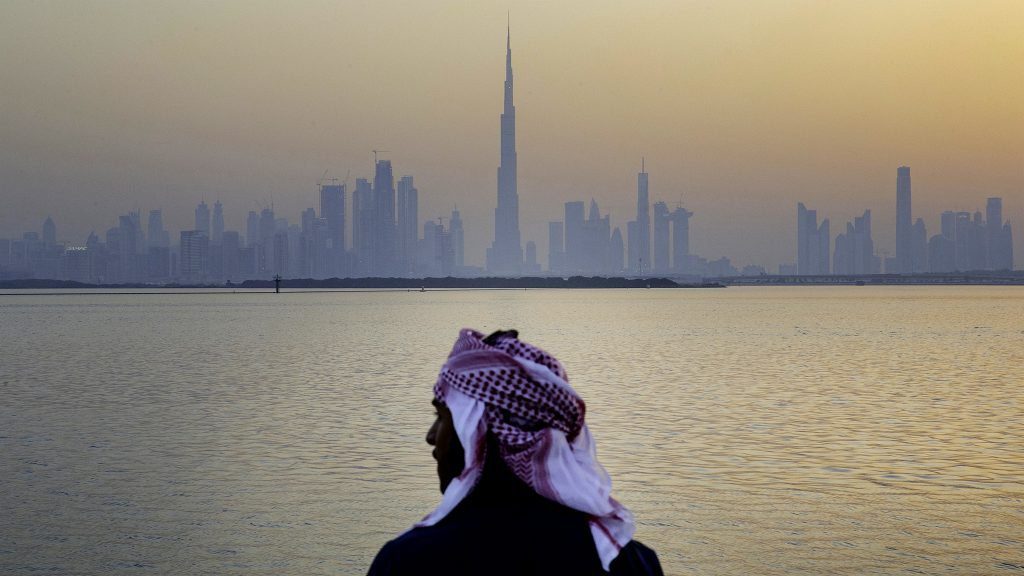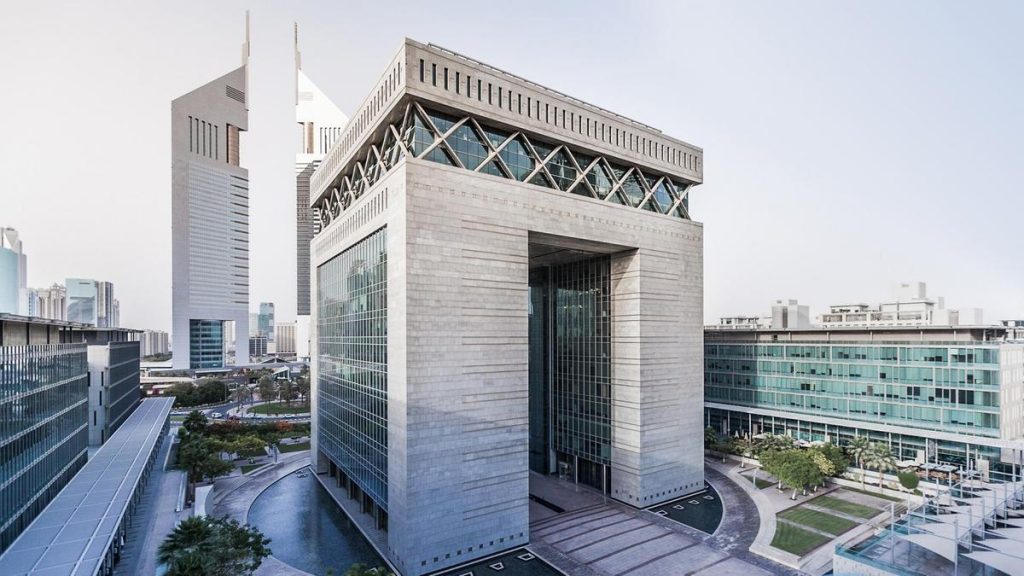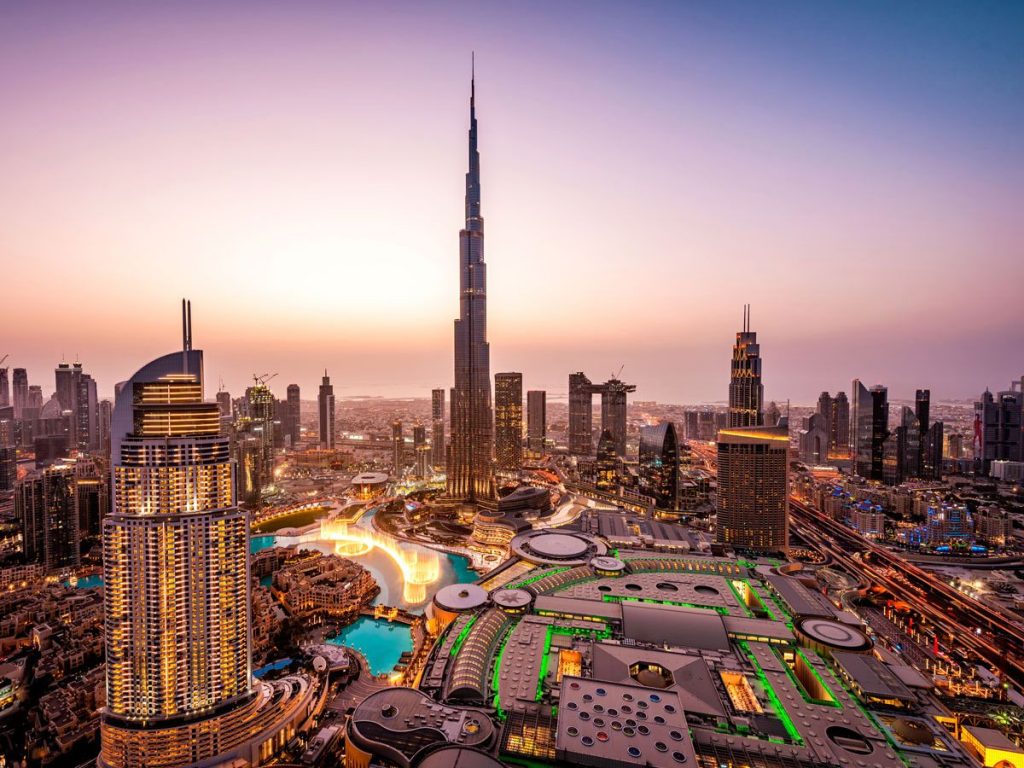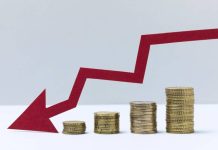
- Total number of companies currently operating in the DIFC stands at 2,289 – a 14 percent increase year-on-year and a 7 percent increase since end of 2018
- Over 250 new companies, a 10 percent increase from the same period in 2018
- More than 660 jobs created, boosting combined workforce to more than 24,000 professionals
- DIFC’s financial technology ecosystem doubles in size in first half of 2019 – now includes over 200 companies, of which more than 80 are fully-licensed FinTech firms
- 425 applications received for third cohort of FinTech Hive accelerator programme – three-fold growth since 2017 and 42 percent increase from 2018
Dubai International Financial Centre (DIFC), the leading international financial hub in the Middle East, Africa and South Asia (MEASA) region, reinforced its contribution to the UAE’s economy and its commitment to driving the future of finance.
The Centre saw sustained growth in the first half of 2019, welcoming more than 250 new companies, and bringing the total number of active registered firms to 2,289, demonstrating a 14 percent increase year-on-year. This has fuelled the creation of over 660 jobs, boosting the Centre’s combined workforce to more than 24,000 individuals, and has resulted in the occupancy of 99 percent of DIFC-owned buildings.
The DIFC now boasts more than 671 financial related firms, an 11 percent increase from the same period last year. The financial services firms that joined in 2019 include Maybank Islamic Berhad from Malaysia, Cantor Fitzgerald from the United States of America, Atlas Wealth Management from Australia and Mauritius Commercial Bank. In addition, leading non-financial firms including Guidepoint MEA, Medtronic Finance Hungary Kft. and Network International, have also joined the Centre in the first six months of 2019.
His Highness Sheikh Maktoum bin Mohammed bin Rashid Al Maktoum, Deputy Ruler of Dubai and President of the DIFC, said: “Dubai continues to gain recognition on the global stage as the destination where business meets innovation, and the DIFC has been a significant driver of this. The strong performance that the Centre has delivered during the first half of 2019 highlights the confidence and trust that international financial institutions have in Dubai. Aligning with the 50-year charter announced by His Highness Sheikh Mohammed bin Rashid Al Maktoum, Vice President and Prime Minister of the UAE and Ruler of Dubai, the planned expansion of the DIFC will solidify Dubai’s role as a pivotal hub for companies from around the world to access regional opportunities.”
His Excellency Essa Kazim, Governor of DIFC, commented: “The DIFC has been a pioneer in the financial services sector since its inception in 2004, as the first purpose-built financial centre in the MEASA region. 15 years on, we continue to demonstrate our forward-thinking approach with the enhancement of our legal and regulatory framework, as well as the development of a comprehensive ecosystem. The Centre remains a fundamental driver in leading financial sector transformation, supporting the advancement of the UAE economy, and developing the next generation of financial professionals.”
Driving the Future of Financial Services in MEASA
In response to the strong demand the DIFC continues to witness from financial institutions across the globe, the Centre embarked upon 2019 with the announcement of new expansion plans, supporting the economic future of Dubai and the UAE. The phased growth plan will triple the scale of the leading financial hub and enable the DIFC to help deliver on Dubai’s ambitious growth agenda, whilst diversifying and transforming the financial services sector within the wider region.
The new development will provide an international focal point for FinTech and innovation, enhancing the Centre’s reputation as one of the world’s most advanced financial centres and reinforcing Dubai’s position as one of the world’s top ten FinTech hubs, as listed by FT’s The Banker.
The Centre has already seen a marked increase in the number of firms that make up its dynamic FinTech ecosystem, which more than doubled in size from over 80 to 200 companies in the last six months. Similarly, the number of licensed FinTech firms operating in the DIFC increased from 35 to more than 80 in the first half of 2019. Key international FinTech firms that have made the Centre their MEASA base include Dublin-based software company Fenergo, InsurTech leaders Charles Taylor and Swedish crowdfunding platform, FundedByMe.
Arif Amiri, Chief Executive Officer of DIFC Authority, commented: “We are continuing to cement our global position as a pivotal business and finance hub, while making significant headway towards meeting our 2024 targets. Our focus on innovation and technology is delivering a blueprint for sustainable growth as we continue our journey towards driving the future of finance. DIFC’s emphasis on transforming its lifestyle offering, alongside strategic investments within technology and FinTech means we are confident about reinforcing our position as a leading global financial centre – a great place to live, work, play and do business.”

The Centre received 425 applications from start-ups operating in the RegTech, Islamic FinTech, InsurTech and broader FinTech sectors, for the third cohort of its DIFC FinTech Hive accelerator programme, a 42 percent increase from the 2018 programme. This also marked a three-fold increase from its inaugural cycle in 2017, exemplifying the pace of evolution of this fast-growing industry, as well as the preference of Dubai and the DIFC as the home for FinTech firms looking to scale their business across the region. Approximately half of the applications received for the 2019 programme originated from the Middle East, Africa and South Asia.
33 start-ups have been selected following a series of interviews, conducted in consultation with DIFC FinTech Hive’s network of 21 participating partners, including Abu Dhabi Islamic Bank (ADIB), Emirates Islamic, Emirates NBD, Finablr, HSBC, National Bank of Fujairah, Noor Bank, Riyad Bank, Standard Chartered, and Visa, as well as the associate financial institution partners Arab Bank and First Abu Dhabi Bank (FAB).
InsurTech start-ups will work closely with leading insurance players, AXA Gulf, Noor Takaful (Ethical Insurance), Zurich Insurance Company Ltd (DIFC), AIG, Insurance House, Cigna Insurance Middle East S.A.L. and MetLife, to help them develop game-changing solutions that address the growing requirements of the industry. In addition, this year’s finalists will be supported by strategic partner Dubai Islamic Economy Development Centre (DIEDC) and digital transformation partner Etisalat.
Furthering the Centre’s commitment to supporting FinTech in the region, DIFC hosted the first Demo Day for the inaugural cycle of the Startupbootcamp programme in April 2019, alongside HSBC and Mashreq. The event showcased innovative concepts from ten graduates of the programme, consisting of entrepreneurs from the UAE, Singapore, United Kingdom, Greece, France, Thailand, Ghana, Morocco, Ukraine, and the Czech Republic.
The Centre’s thriving FinTech community benefits from the strong relationships the DIFC has continued to build with key international accelerators through ongoing delegations and partnership agreements. The DIFC signed four MoUs during the first half of 2019, one with Dubai SME to help foster entrepreneurship in the UAE and further the National Innovation Agenda, as well as three additional agreements with FinTech Saudi, Milan’s FinTech District and FinTech Istanbul, expanding the Centre’s network of international FinTech hubs to 14.
Furthermore, DIFC has worked to increase access to funding by engaging and building its Venture Capital ecosystem, as well as investing directly into promising FinTech start-ups. In March 2019, the Centre announced the appointment of Middle East Venture Partners and Wamda Capital to manage USD 10 million of its dedicated USD 100 million FinTech fund. To date, DIFC has received more than 50 applications from a variety of financial technologies, including payments, roboadvisory, blockchain and KYC platforms. The applications received have been in equal parts from early and growth stage firms, signifying interest from firms across the start-up business cycle.
Supporting Human Capital Development and Delivering Sustainable Impact
As part of the DIFC’s efforts to support continued professional development and strengthen the regional talent pool, the DIFC Academy offers world class financial and legal education through strategic partnerships with 26 leading educational institutions and government entities. To date, the DIFC has seen more than 5,500 graduates successfully undertake executive education courses and programmes in finance, business and law, as well as two dedicated Masters of Laws (LLM) programmes.
Knowledge sharing and thought leadership remained a core focus for the financial centre in 2019. The third edition of the Dubai World Insurance Congress (DWIC) and the second edition of the Global Financial Forum (GFF) welcomed more than 700 industry leaders to each flagship event. Key speakers at DWIC included James Vickers, Chairman of Willis Re International and David Watson, Chief Executive Officer for Europe, Middle East and Africa and International Casualty at AXA XL, who shared global perspectives on reinsurance growth strategies. Meanwhile, the GFF, which brought together more than double the number of business leaders compared to the inaugural event in 2018, attracted the likes of Sir Gerry Grimstone, Former Chairman of Barclays Bank PLC and emerging markets guru, Mark Mobius.
In recognition of DIFC’s efforts towards building one of the world’s leading financial centres over the last 15 years, the Centre was the only free zone in the UAE to receive the Dubai Quality Award in April 2019. The award is a reflection of the DIFC’s hard work and dedication in building a sustainable and progressive business environment.
In May 2019, another milestone for sustainable business growth was achieved as Majid Al Futtaim launched the world’s first benchmark corporate Green Sukuk at Nasdaq Dubai, supporting Dubai’s growth as the global capital of Islamic economy. The Green Sukuk investment will be used to finance and refinance Majid Al Futtaim’s existing and future green projects, including green buildings, renewable energy, sustainable water management, and energy efficiency.

Enhancing the Legal & Regulatory Framework to Fuel Growth
The Centre has been at the forefront of enhancing its legislative infrastructure to provide the DIFC community with access to opportunities within the MEASA region, whilst providing greater stability and certainty when doing business in the DIFC. The Centre’s robust legal and regulatory framework remains the most sophisticated and business-friendly Common Law jurisdiction in the region, aligned with international best practice.
DIFC continues to support the development of the financial services sector and foster the UAE’s economic growth by encouraging the development of the domestic funds market. In May 2019, the DIFC’s independent regulator, the Dubai Financial Services Authority (DFSA), announced the a new regime to facilitate the passporting of funds, in collaboration with the UAE’s other financial regulators. The UAE passporting regime is a regulatory mechanism for the promotion and supervision of investment funds that encourages foreign licensed firms in financial free zones based in other countries to enter the local market.
With the aim of ensuring businesses and investors can operate across the region with confidence, the DIFC also unveiled the new Insolvency Law in June 2019, enacted by His Highness Sheikh Mohammed bin Rashid Al Maktoum. The new law facilitates a more efficient and effective bankruptcy restructuring regime for stakeholders operating in the DIFC.
In addition, the DIFC has continued to create an attractive environment for the 24,000 strong workforce based in the Centre to thrive, whilst protecting and balancing the needs and interests of both employers and employees. To support its vision, the DIFC unveiled its new Employment Law in June 2019 to address key issues such as paternity leave, sick pay, end-of-service settlements and more.
As part of the Centre’s blueprint for the transformation of the financial centre and in line with global retirement savings trends the DIFC launched the Employee Workplace Savings (DEWS) scheme, which will see the evolution of end-of-service benefits from a defined benefit scheme to a defined contribution scheme, while offering a voluntary savings component for employees.
The Centre also unveiled a new unified, simplified and more expansive Prescribed Companies regime that makes structuring and financing in the DIFC faster, flexible and more cost-effective. The new regime encompasses structures previously offered by the Centre, including Intermediate Special Purpose Vehicles (ISPVs) and Special Purpose Companies (SPCs). This has contributed significantly to a robust pipeline of prospective business from the aviation financing sector, as well as generating substantial interest from family offices looking to utilise these structures in their succession planning.
Creating a Vibrant Retail & Lifestyle Experience
Today, 91 percent of DIFC’s prime retail space is occupied by 432 leading lifestyle, art, fashion and food & beverage brands, an offering that will be significantly boosted once Gate Avenue is fully open. Upon officially opening its doors to the public, the new development will provide seamless connectivity to the Centre’s comprehensive lifestyle offering, from The Gate building through to Central Park Towers. The new retail experience will feature over 100 days of unique arts, culture and wellness activations, making DIFC the destination where business meets lifestyle.
During the first half of 2019, Hilton Hotels & Resorts announced the opening of Waldorf Astoria, Dubai International Financial Centre. The 275-key hotel occupies the 18th to 55th floors of the Burj Daman complex, including 46 suites and 28 residential suites offering unobstructed views of the Downtown Dubai skyline. Combined with the two other world-class hotels based in the Centre, Four Seasons and the Ritz-Carlton DIFC, this brings the total number of hotel rooms available to those visiting the DIFC to 722.
In addition, the Centre welcomed a number of new culinary concepts to the DIFC’s gourmet scene including ‘Marea’, the New York fine dining experience led by multi-Michelin starred chef, Michael White as well as Grecian inspired ‘Avli by Tasha’. In March 2019, it was announced that renowned chef Nusret Gökçe is set to launch casual dining concept ‘Saltbae’ at the Centre this year.
DIFC is also home to one of the UAE’s largest collections of public art with sculptures from internationally renowned artists including Manolo Valdés and is the foundation for initiatives such as the One Mile Gallery in partnership with Brand Dubai which showcases the best of local, regional and international design and promotes art, innovation and entrepreneurship.
The Centre also welcomed its seventh elite art gallery, Sconci Gallery to the DIFC in the first half of 2019. Established in Rome during 1977, the gallery has collaborated with leading artists and international auction houses to showcase collections from masters of modern and contemporary art, as well as emerging artists.
During March 2019, the DIFC hosted the most successful edition of the hugely popular Art Nights in the last five years. The event, which marks the beginning of Dubai’s coveted art season, Art Dubai 2019, saw participation from international and local art galleries and artists, as well as installations accompanied by electric musical performances and light installations from interdisciplinary artists.
HedgeThink.com is the fund industry’s leading news, research and analysis source for individual and institutional accredited investors and professionals





































